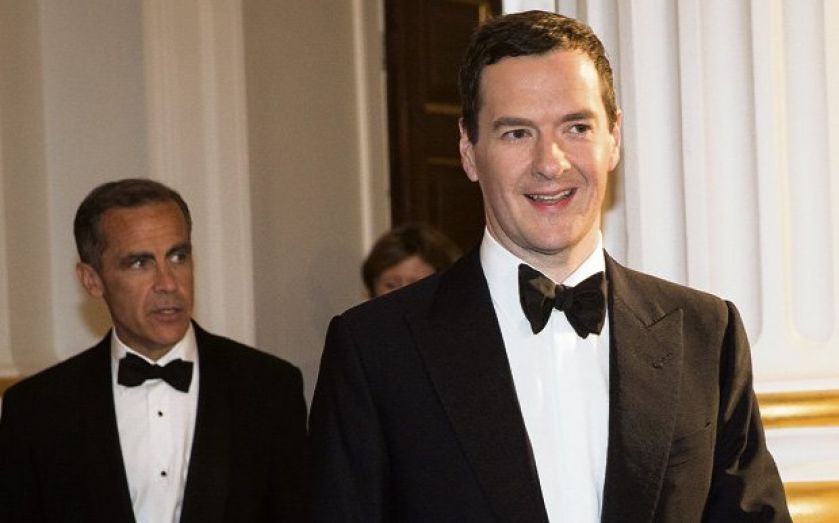George Osborne and Mark Carney hit by interest rate stitch-up row

City MP Mark Field last night questioned the independence of the Bank of England, sensationally suggesting that governor Mark Carney and chancellor George Osborne had made a pact that would ensure interest rates remained at their historic low until next year’s general election.
A Treasury source hit back, saying “The idea that there is some sort of deal between the chancellor and the governor is utterly false.” The Bank is supposed to have been operationally independent of Westminster since Gordon Brown reformed the relationship in 1997.
But Field has suggested this is not the case. Most economic commentators believe a deal to hold down rates would in the short-run boost the economy, helping Osborne’s re-election hopes.
“From the moment Mark Carney became governor in July 2013, it was pretty clear forward guidance was an indication rates would not rise this side of the election – for all the talk of Bank of England independence, there was a clear bargain between him and George Osborne,” Field told City A.M.
“In my view, politically nothing has changed. What is best for Carney is not to have running commentary – which Kremlinologists in the City try to work out… the political imperative is to keep rates as low as possible.”
Field added: “Every time he [Carney] opens his mouth, there are jitters in the markets, the impact on the pound and concerns that rates go up, which damages confidence when recovery is fragile.”
Last week, Carney indicated rates would not rise until wages began to increase, a sign that the economy was strong enough to withstand the higher cost of money. His statements pushed bank markets’ expectations of a rate hike further into 2015 – although a weekend interview with the Sunday Times seemed to open the possibility of earlier action, if required.
“It certainly seems as if there is some pressure on the Bank of England to continually keep interest rates low even when the economic situation is improving,” said economist Ros Altmann, who has campaigned on behalf of savers who are negatively affected by low rates. “This encourages people to take on more borrowing at rates which will become unaffordable when rates start rising.”
The Bank of England and Treasury both denied any such deal is in place.
“There is no agreement between the governor and the chancellor over Bank rate and never has been. The Bank of England's Monetary Policy Committee is completely independent in its interest rate decisions,” said the Bank.
A Treasury spokesman said: “The Bank of England sets monetary policy independently of the government. The government welcomes and respects that independence.